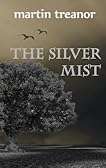Many classic novels draw on this method, creating the mood and the tone of an earlier era for a modern reader, as do many of the genre novels of today. And in non-fiction works, whether they are biographical, part-bio, or observational, the first-person viewpoint brings the subject matter much closer to home.
In his book, "A New Earth," Eckhart Tolle takes us on a journey of discovery, putting forward thought-provoking ideas on the individual and collective spiritual aspects of the human race. Tolle tells us his own story along the way, and we are part of the process: his work, his relationships, his life, his studies, and how ultimately they led him to the insights in the book, insights that provide much food for thought.
Of course, being drawn into the world of the writer shouldn't be taken the wrong way. My neighbor Buggeroff, read four of Ian Fleming's James Bonds novels in a row, then went out and hired an expensive, flashy sports convertible for a week. He barely had enough cash that week to buy petrol, and spent his spare time driving that thing to the local shop each day for bread and milk. Buggeroff really needs to read Eckhart Tolle.
Speculative fiction is a style of fiction that is not easily classified, as it contains ideas that transcend the established range of genres and sub-genres, ideas that are often mind-expanding in their scope. Science fiction and fantasy are the usual suspects in showing those sides, but sometimes the most amazing discoveries are all around us, hiding in plain sight in the everyday.
The first-person viewpoint can therefore be just as effective, in surprising ways, in fictional works that transcend genres, as I found recently when reading 'The Silver Mist,' by Martin Treanor, and which I reviewed on the Good Reads site.
There's always something particularly exciting about seeing the world differently through a character's eyes.
 Silver Mist, The by Martin Treanor
Silver Mist, The by Martin TreanorMy rating: 5 of 5 stars
Before I had finished the first chapter of this novel I knew I was in for a very special reading experience. Poignant, emotive and superbly written, it perfectly invokes the mood of 1970's Belfast, as seen through the eyes of Eve, a young Down's Syndrome woman. Eve's friendship with the mysterious Esther opens her eyes to both the horrors and wonders of our world through a series of spiritual journeys, and we are there every step of the way. Treanor's tale is intriguing, heartfelt and uplifting. It provides some thought-provoking insights into the nature of our existence and has stayed with me after turning the final page. A rare and highly commended read.
View all my reviews